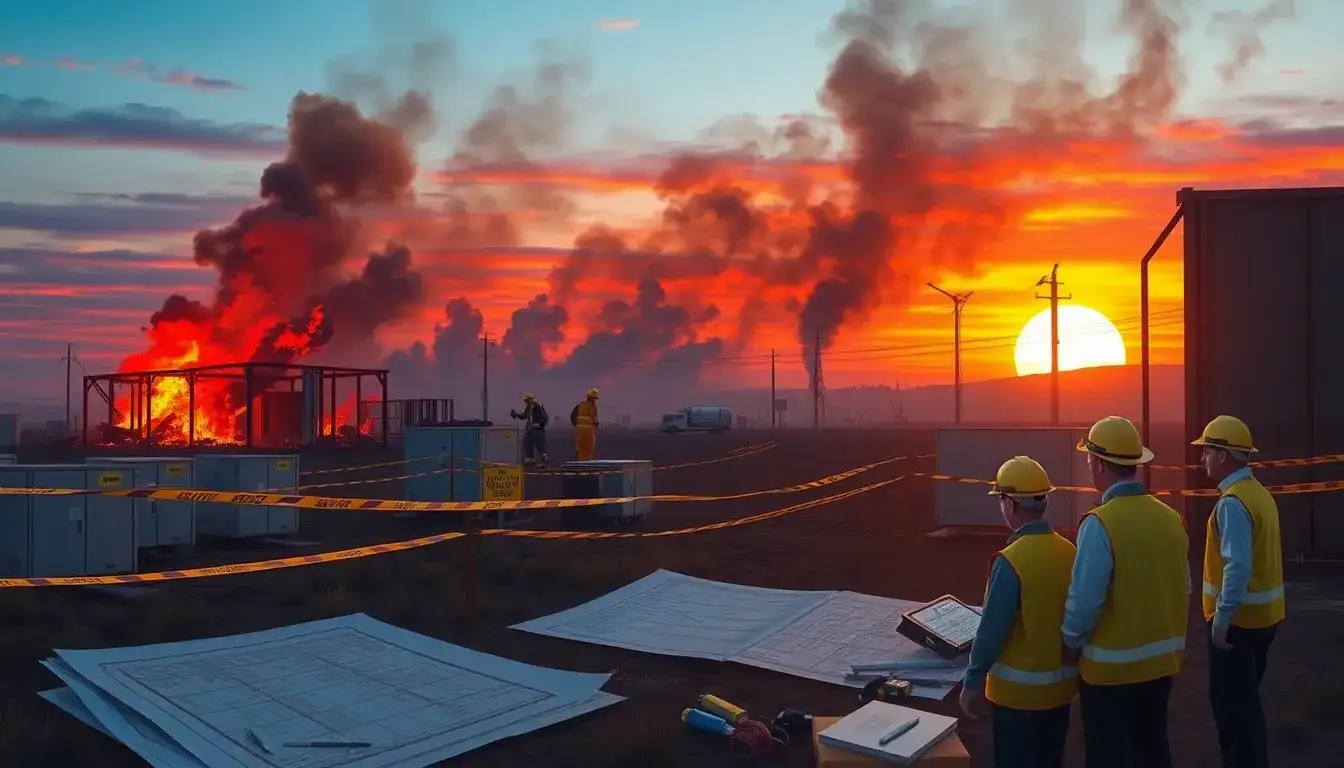
Following the recent fire at the Moss Landing Energy Storage Facility in Monterey County, California, local counties are implementing urgent regulations for battery energy storage systems (BESS).
On January 16, 2025, a fire broke out in the indoor facility of the 300 MW Phase I energy storage project, leading to the evacuation of approximately 1,200 residents due to concerns over hazardous materials and possible chemical releases. Although few details about the fire have emerged, an update from the Monterey County North County Fire Protection District on February 5 indicated that the situation was stable. Reports from the Monterey County Sheriff’s Office revealed that around 40% of the battery storage system had burned, with later updates suggesting that nearly all of the 300 MW Phase I facility was affected.
In response to the incident, California Governor Gavin Newsom and other politicians have called for an independent investigation into the fire at the facility, which is owned by Vistra Energy. Concurrently, the California Public Utilities Commission (CPUC) is proposing measures to enhance the safety of battery energy storage facilities.
In nearby Orange County, the Board of Supervisors has approved a moratorium on permits for large-scale BESS facilities in unincorporated areas. This decision stems from concerns regarding lithium-ion battery fires and the unique challenges they pose to firefighters. Vice Chair Katrina Foley introduced the urgency ordinance, which mandates that the Orange County Public Works Department work with the Orange County Fire Authority (OCFA) to produce a report recommending measures to mitigate hazardous conditions associated with BESS facilities.
The city council of Morro Bay, located about two hours south of Moss Landing, has also taken action by imposing a 45-day moratorium on both current and new BESS projects.
At the state level, Assemblymember Dawn Addis introduced Assembly Bill 303, known as the Battery Energy Safety & Accountability Act, on January 23, 2025. This proposed legislation seeks to impose significant restrictions on BESS developments, including prohibiting facilities of 200 MWh or greater within 3,200 feet of sensitive locations, restricting development on environmentally sensitive sites, and repealing 2022 permitting reforms that expedited approvals for these facilities.
The American Clean Power Association has raised concerns about the broad implications of this bill. Additionally, the CPUC is set to discuss further regulations in a meeting on March 13 that would enhance standards for the maintenance and operation of battery energy storage facilities and increase oversight of emergency response plans.
Recent incidents in San Diego have prompted the local government to establish new BESS standards following a 17-day fire, though they did not ban battery storage projects outright. Instead, they require that all applications for battery storage sites include detailed fire safety information prepared by a fire protection engineer.
The Moss Landing facility is notably unique as it operates within an indoor enclosure, a rarity among BESS projects today. Data indicates that the rate of safety incidents involving BESS has been decreasing, with only five significant events reported globally in 2024, three of which occurred in the U.S., one in Japan, and one in Singapore. This decline is notable given the exponential growth of large-scale battery installations worldwide, leading to the lowest incident rates seen in nearly a decade.
For more information, please refer to the original source.
Original article by NenPower, If reposted, please credit the source: https://nenpower.com/blog/moss-landing-fire-sparks-urgent-regulations-for-battery-energy-storage-systems-in-california/


